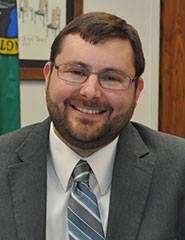Published by JD Rossetti in The Rebel on May 26, 2017
The first Special Session of the Washington legislature is scheduled to end on May 23rd, and negotiations between Senate Republicans and House Democrats are not happening on the state operating budget. Both the Senate and the House chambers passed their own budget plans during the regular session that ended in April.
The House budget is $44.6 billion, and the Senate plan is at $43 billion for two years. Senate Republicans have said they are waiting for House Democrats to pass the taxes that pay for their plan. House Democrats say that they have no plans to take floor votes on taxes because they want to have an agreed-upon compromise plan first.
State Rep. Beth Doglio (D-Olympia) is quoted as saying: “Senate Republicans are once again refusing to come to the table to talk. So we wait, now likely heading into a second special session, pushing additional costs onto taxpayers that could have easily been avoided. It doesn’t have to be this way… There is no reason why the operating budget cannot follow a similar path (to the bipartisan transportation and capital budgets). It just takes a willingness on the part of the Republicans to meet us halfway. That’s how compromise works, and that’s how problems are solved.”
Meanwhile, a bipartisan group of lawmakers, including some of the main budget writers, have been meeting to address basic education. Discussions continue about how to fully comply with the 2012 McCleary Supreme Court ruling on education funding. At this point, the group that has been meeting has focused on the education policy and not the funding.
There have been some House and Senate floor votes to re-pass bills with technical fixes that were previously approved in the regular session, and a few committee hearings. The main action has been Governor Jay Inslee signing nearly 300 bills into law that were passed during the 105-day regular session.
So, what’s next? If lawmakers haven’t reached a budget deal and passed it by the time the first special session ends on May 23, the governor will likely call for another 30-day special session. The current two-year budget expires on June 30, which means the 2017-2019 budget must be signed by the governor by then or else the state is at risk of a partial government shutdown.
As always, thank you for reading my update!
Sincerely,
— J.D. Rossetti
Washington Legislative Director Washington Area Council, AWPPW
